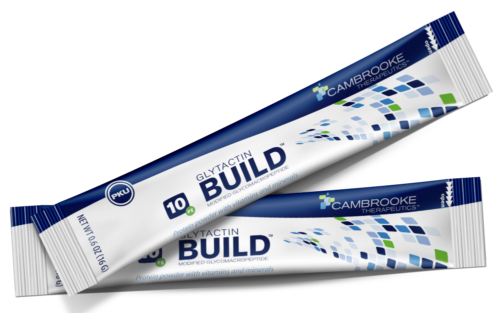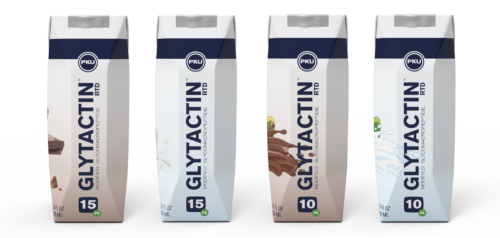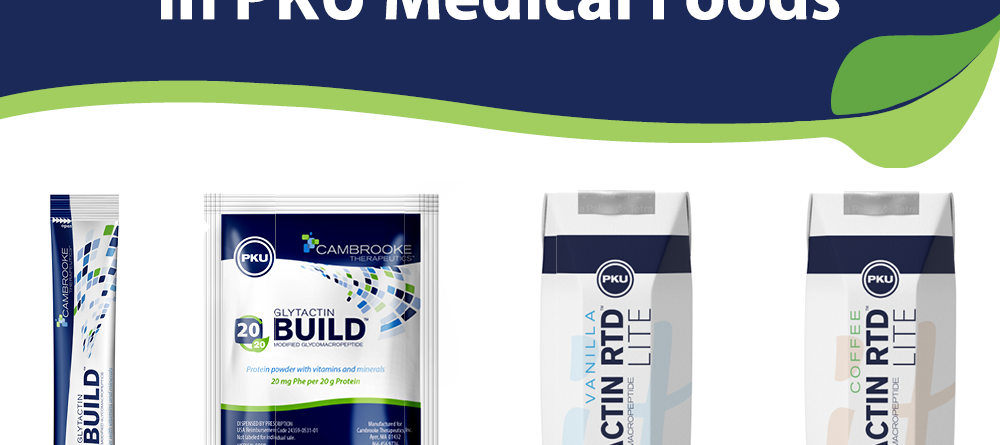The Most Pure and Natural GMP
Today’s BLOG is all about protein – with special focus on advancements in many new Cambrooke Glytactin products in terms of purity. Phe reduction (aka purity) as well as overall natural protein power. Key things you will learn if you read on:
- The amino acids used in some PKU formulas may lower purity depending on how they are made and may not be from natural sources
- The purity of glycomacropeptide (GMP) protein is not the same for all PKU formulas. GMP is the greatest innovation in PKU-friendly protein since PKU formulas existed – but that does not mean all GMP formulas are the same…

You surely know that protein is made up of amino acids. There are 20 amino acids found in just about all dietary protein sources. One of these amino acids is phenylalanine (Phe) that must be carefully controlled and limited in the PKU diet (I know you know this, too, but don’t stop reading yet; I’ll get to some interesting new information soon…).
Not all Proteins are created equal
Amino acids can be grouped into two categories: Essential amino acids and Non-Essential amino acids. The simple difference is that your body can ‘create’ Non-Essential amino acids from other things in your diet, but cannot do so for Essential amino acids.
There is another group called Large Neutral Amino Acids (LNAAs). Research suggests the presence of LNAAs can interfere with the ‘transport’ of Phe into your blood stream and then again from your blood stream into your brain. And that is obviously a good thing for PKUers.
But, if LNAAs help even a little bit, might that be a good thing? If so, might it make sense to choose a PKU medical food with a higher percentage of LNAAs? Here is a comparison of some of the formulas for PKU, both GMP based and AA based.
Not all Amino Acids are created equal
In this part of the BLOG I am not looking at specific amino acids, but how individual amino acid is actually ‘born’. After all, they don’t grow on trees… so, where do they come from? It depends.
There are three ways to make amino acids: Chemical Synthesis, Human Hair / Animal Extraction, or Natural Fermentation. I am pretty sure I know which one you prefer, but allow me a moment to explain just a bit more about each.
- Chemical Synthesis. Get out your test tubes and your beakers, and let’s make the amino acid methionine by chemical synthesis. Here are the ingredients you need: sulphur, methanol, ammonia, propylene, sulphuric acid and energy (gas – CH4). Maybe not.
- Human Hair / Animal Extraction. No kidding. Human hair and feathers from birds contain amino acids. There are several videos on the internet showing a process for extracting the amino acids. Generally, this involved heat, high pressure and a big dose of acid to unlock the amino acids.
- Natural Fermentation. Or… amino acids can be fermented. Yeast is the common stimulus for fermentation. Beer, cheese, yogurt, probiotics and many other common products are fermented. Technology has evolved to the point that most amino acids can be fermented.
Fermentation is the most natural way to make amino acids – It might cost more than the human hair or chemical synthesis approaches, but I’d say it is worth it!
Chemical synthesis and the hair/feather extraction techniques are generally produced overseas – China has a thriving business in these techniques.
The founders of Cambrooke had a choice when making medical food formulas for their two children with PKU – they opted to pursue a path leading to Cambrooke having the most natural and pure sources of amino acids in the Gytactin family of PKU formulas. Yes, these formulas use glycomacropeptide (GMP) for most of the protein, but also must sparingly include some amino acids. Cambrooke proudly uses Ajinomoto amino acids from its AjiPURE brand. These are made in the United States and are 100% naturally fermented.
When combined with Cambrooke’s special GMP, Glytactin is the most natural and pure source of PKU protein available.
Not all GMP is created equal
Glycomacropeptide (GMP) is a modern day miracle when it comes to PKU protein nutrition. GMP starts as cow’s milk. Milk is made of casein and whey. Some very smart scientists at the University of Wisconsin (lots of cows and cheese up there) discovered a part of whey called glycomacropeptide was naturally free of the aromatic amino acids including Phe…

If only it were possible to separate PURE GMP from Whey protein. It is not (not yet anyhow). There is a complicated filtering process employed to separate GMP from whey and it is not perfect. As a result, there is some Phe ‘residual’ in the GMP used in PKU formulas. That’s why you see Phe listed on the nutrition panel of all medical food formulas containing GMP. HOWEVER – not all GMP is equal.
Since being acquired by Ajinomoto, Cambrooke has been able to introduce PKU formulas with a more purified GMP. More pure = less Phe. The newest Cambrooke PKU formulas have less Phe than what some consider ‘free foods’ in terms of the phe content. At a level as low as 1 mg PHE per gram of Protein, a 10 gram of protein equivalent of the new Cambrooke Glytactin medical foods have only 10 mg of phe – that’s less than an apple!
Compared to other GMP-based medical foods, new Cambrooke Glytactin formulas have up to 40% less Phe.
We think that is awesome and opens up more options for your diet as well as may allow highly Phe-sensitive PKUers to also enjoy the natural taste of GMP protein. By the way, these new formulas are called Glytactin RTD Lite and Glytactin BUILD. Of course, your health care professional must be consulted with regard to changing to a Cambrooke Glytactin GMP formula. If you get the green light, then we are here and ready to help.




Leave a Reply
You must be logged in to post a comment.